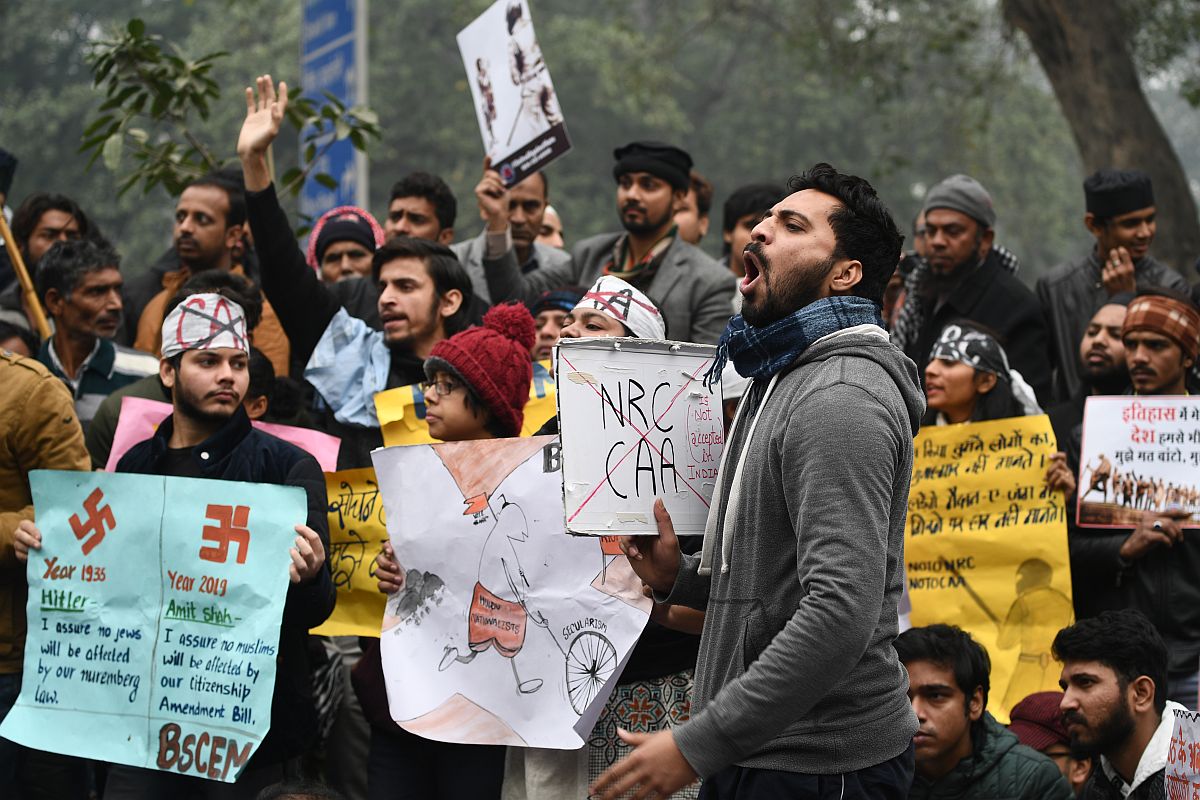The Term "Anti-CAA"
Shalom. I am not here to inform you on the CAA, its pros, its cons or the controversies surrounding it. I am presently writing about it, and I will share my findings with you in due time. Today, I just want to talk about the term “Anti-CAA”.
Anti is a Greek word, for “against” or “opposite”. It’s used in the English Language very often but in this case, it’s been misused (in my opinion).
For those who don’t know what the Citizenship Amendment Act is or need to jog their memory, this is the first part of it, word-for-word:
“Provided that any person belonging to Hindu, Sikh, Buddhist, Jain, Parsi or Christian community from Afghanistan, Bangladesh or Pakistan, who entered into India on or before the 31st day of December, 2014 and who has been exempted by the Central Government by or under clause (c) of sub-section (2) of section 3 of the Passport (Entry into India) Act, 1920 or from the application of the provisions of the Foreigners Act, 1946 or any rule or order made thereunder, shall not be treated as illegal migrant for the purposes of this Act;”.
So this part of the CAA made it such that “any person belonging to Hindu, Sikh, Buddhist, Jain, Parsi or Christian community from Afghanistan, Bangladesh or Pakistan, who entered into India on or before the 31st day of December, 2014” would not be classified as an illegal immigrant (alongside the condition that they meet some additional basic criteria).
There was a lot of controversy about this part of the Act. Excluding the North-East protests (which would involve me delving into the NRC), the issues brought up during the other protests across India are that the Act:
-
Discriminates on the basis of religion
-
Was selective in deciding who is a refugee
Now I will discuss these arguments in detail when I conclude my research but the point I’m trying to put forth here is that the primary objection people had with the CAA was that it allegedly excluded groups of people (e.g. Ahmadis, Hazaras, Shias, Sri Lankan Tamils).
So a lot of people wanted the government to broaden the scope of the Act, to include the minority communities they believed were being excluded.
But that is not the same as being “Anti-CAA”.
As I explained, “anti” means against. To be “Anti-CAA” means to be against the provision of fast-track citizenship to “any person belonging to Hindu, Sikh, Buddhist, Jain, Parsi or Christian community from Afghanistan, Bangladesh or Pakistan, who entered into India on or before the 31st day of December, 2014”.
To be “Anti-CAA” means to be against providing fast-track citizenship to refugees fleeing religious persecution.
From my understanding of the debate surrounding the Act, there are two primary groups of people lumped under “Anti-CAA”. One is the people who want the act to be broadened and the second is people who want the Act to be “scrapped” or “rejected”. Both groups are enormous, but a lot of them are using the same slogans, as you can see in the pictures below:


Once again, the point of this article isn’t to tell you whether or not you should support or reject the CAA. All I’m saying is that if you believe it should indeed be expanded to include minorities such as Ahmadis, Shias, Sri Lankan Tamils etc. you should not be calling for it to be rejected, you should be calling for it to be expanded.
To me, this is an important distinction because rejecting the Act is rejecting humanity.
Ridhi